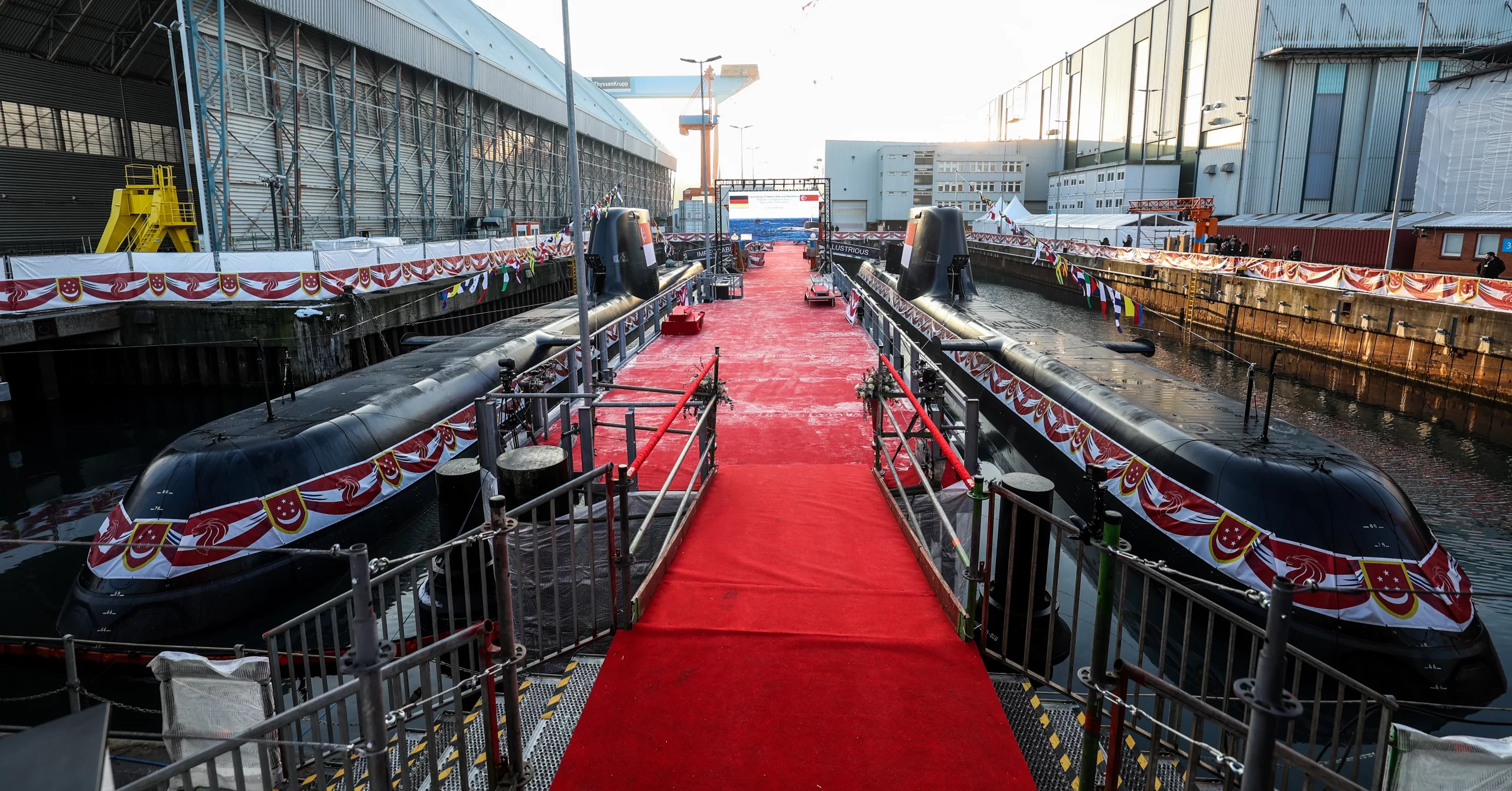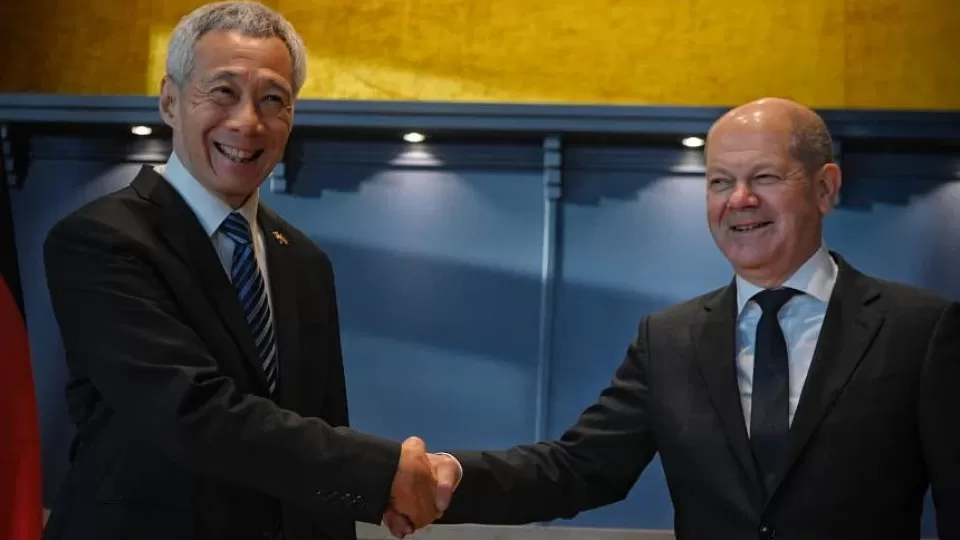December 14, 2022
BERLIN – Prime Minister Lee Hsien Loong and German Chancellor Olaf Scholz met on Tuesday and discussed how their countries could work together as strategic partners to address global challenges.
This included supporting free trade, enhancing the resilience of supply chains, and strengthening economic linkages between their two regions, said PM Lee’s press secretary Chang Li Lin.
In this regard, both leaders stressed that Asean-European Union relations and cooperation were of strategic importance, Ms Chang added.
Both PM Lee and Mr Scholz are scheduled to attend the Asean-EU Commemorative Summit in Brussels, Belgium, on Wednesday, alongside the leaders of countries in both regional groupings.
The bilateral meeting at the Kieler Yacht Club in Kiel, a major shipbuilding centre that is home to the German Navy’s Baltic fleet, is the second between the two leaders in a month, following Mr Scholz’s visit to Singapore in November.
After the meeting, both leaders travelled to the thyssenkrupp Marine Systems (TKMS) shipyard by boat for a ceremony to launch Singapore’s two newest submarines.
The custom-designed Impeccable and Illustrious, the second and third of four Invincible-class boats, are swifter, quieter, and have more firepower and endurance than anything the Republic of Singapore Navy has operated before, noted PM Lee in a speech.
He thanked Mr Scholz for travelling to Kiel to meet him and attend the launch. As a maritime nation, Singapore is highly reliant on the free, unimpeded movement of goods and materials across the sea for its prosperity and survival, and submarines provide the navy with an added capability to keep sea lines of communication open, he added.
He noted Singapore-German defence ties are strong and growing, with Singapore hosting the German frigate FGS Bayern and the German Air Force’s Eurofighters and tankers for their inaugural regional deployments this year.
Mr Scholz said Singapore is an important strategic partner for Germany’s security policy.
“Supply chains depend to a large extent on open sea routes and trade routes. The Strait of Singapore is one of the most important sea routes. There is no need to explain to countries with major ports that the freedom of the sea lanes must be maintained and international law observed,” he said.
“Diversification of trade relationships and supply chains is the order of the day, not deglobalisation and decoupling,” he added. “Security and stability in the Indo-Pacific ensures that the international order as a whole can be maintained. They are a protection against imperialism and warmongering.”
Mr Scholz also said Germany was grateful for Singapore’s support for Ukraine against Russian aggression, adding: “We are glad to have a strong partner in defending the rules-based international order in Singapore.”
PM Lee thanked TKMS and the German Navy for their strong support and sharing of expertise on the submarines, adding: “I am confident that the relationship between Germany and Singapore will grow from strength to strength, and I look forward to more meaningful interactions between our militaries.”

Singapore’s two newest submarines, the custom-designed Impeccable and Illustrious, were launched in Germany on Tuesday. PHOTO: LIANHE ZAOBAO
Ms Chang said that when the leaders met, they also reaffirmed the longstanding and excellent bilateral ties between their countries, in particular in defence and economic cooperation.
They also expressed a common desire to make progress in areas of common interest such as in innovation, climate change, renewable energy and the green economy.
During Mr Scholz’s visit to Singapore in November, he and PM Lee agreed to deepen collaboration between their two countries through a renewed road map.
Areas for closer collaboration include traditional fields such as defence, education and the economy, as well as newer ones such as renewable energy and climate action.


